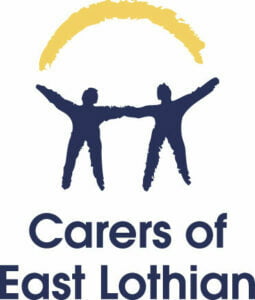The Carers (Scotland) Act 2016 is one of the key pieces of legislation that recognises and gives rights to unpaid carers in Scotland. These rights include:
- the right to an Adult Carer Support Plan (for carers aged 18 and over)
- the right to be involved in the hospital discharge process of the person you care for
- the right to be involved in services
Adult Carers Support Plan
All unpaid carers have the right to request an Adult Carer Support Plan. The plan is an opportunity to express your feelings and needs as a carer and talk about how caring affects you. The aim is to find out what impact your caring responsibilities have on your life and look at ways to support you in your caring role.
Completing a plan is entirely up to you. You can complete the form with help from a Carer Support Worker at Carers of East Lothian, with help from the Local Authority (East Lothian Health and Social Care Partnership) or by yourself. The process starts with a conversation about your caring role and what matters to you. The plan sets out your support needs and personal outcomes. It also covers emergency and future care planning and whether support should be provided as a break from caring. If you would like more information about the Adult Carer Support Plan, please contact us on centre@coel.org.uk
As part of Carers Rights Day 2025, Carers of East Lothian partnered with East Lothian Health and Social Care Partnership to begin work on a series of leaflets to support carers to understand their rights. A leaflet outlining information about the right to an Adult Carer Support Plan can be downloaded here:
Hospital discharge
As a carer, you have a right to be involved in the discharge process when the person you care for is in hospital. This means staff must invite your views about the discharge, take your views into account when planning the discharge and inform you in advance when the discharge will take place.
Please tell staff you are a carer, and how they can contact you, as soon as you can when the person you care for goes into hospital.
As part of Carers Rights Day 2025, Carers of East Lothian partnered with East Lothian Health and Social Care Partnership to begin work on a series of leaflets to support carers to understand their rights. A leaflet outlining information about the right to be involved when the person you care for is being discharged from hospital can be downloaded here:
Involvement in services
As a carer, you have a right to be involved in services. This means local authorities and health boards must take steps to involve carers and carer representatives in the planning and evaluation of services that support carers.
One route to engage in this process is through our Carers’ Panel. This is a group of carers and former carers who meet on a monthly basis to share views, raise awareness and lobby for changes to how carers and the people they care for are supported. For more information on how to get involved, please call us on 0131 665 0135 or email us at centre@coel.org.uk
Carers Strategy
The Carers (Scotland) Act requires local carer strategies to be developed across Scotland. These will set out plans for identifying carers, providing support and services to adult and young carers and provide information about local support.
The East Lothian Carers’ Strategy 2023 is the second local strategy. It is the result of consultation and engagement with carers, carers’ representatives, partner organisations and communities, that will continue over the lifespan of the strategy to inform decision making and future directions.
The strategy focuses on seven outcomes. You can read the strategy and it’s action plan by following the links below. There is also an easy read version.
- ELHSCP Carers Strategy Report
- ELHSCP Carers Strategy Action Plan Year 1
- ELHSCP Carers Strategy Easy Read Version
Breaks from Caring
The term ‘breaks from caring’ can cover any form of support that enables a carer to have time away from their caring responsibilities.
Breaks can take place in a number of ways and for differing lengths of time. They can be done jointly with the cared-for person, or without them, depending on people’s preferences.
Regardless of age, carers should be enabled to take their break in a way that fits the carer and their situation.
ELHSCP in collaboration with CoEL have produced Short Breaks Services Statements which provide information on the different breaks available in East Lothian.
Follow the links below to access the statements:
- Short Breaks Statement – Carers of Children with Additional Needs
- Short Breaks Statement – Carers of Adults
Carers Representative
Carers Representation on the Integration Joint Board (IJB) for East Lothian Health and Social Care Partnership.
David Binnie is your Carers Representative for the IJB for East Lothian HSCP. David’s role is to ensure that the views and interests of unpaid carers are taken into account by the IJB, which is responsible for planning, resourcing and overseeing the delivery of integrated health and social care services in East Lothian. He works closely with other IJB members, HSCP staff and partner organisations to promote and improve the support available for carers.
Self Advocacy
Being Heard is a guide that has been developed by Carers UK, that can help you get your voice heard when you care for someone. Self advocacy is also about being able to have your own needs listened to, as well as speaking up for the person you care for.
As well as being a solid source of information on your rights as a carer, the guides offer helpful tips on how to speak up and look after your wellbeing.
Follow this link to download the Scottish guide.

Useful resources
The Scottish Government produced a Carers’ Charter to help carers understand their rights under the Carers (Scotland) Act 2016.
The Coalition of Carers in Scotland (CoCis) created Carers Act Resources to explain what carers can and should expect following the implementation of the Act on 1st April 2018.
If you are having difficulty communicating with professionals, the Being Heard: a self-advocacy guide for carers created by Carers Scotland has lots of practical advice on how to get the best out of interactions with others and how to make a complaint.
Professionals can sometimes be reluctant to share information with carers for reasons of patient confidentiality. The Mental Welfare Commission has produced a good practice guide Carers and Confidentiality to explain what professionals can and should do to listen to you and support you as a carer.
Carers Scotland also has a guide entitled Looking After Someone that sets out some of your rights and how to access support as a carer.
Carers and Employment
The Flexible Working Act came into effect on 6 April 2024 and covers employees in England, Wales and Scotland. In Northern Ireland, slightly different rules apply – read more.
If you’re managing caring alongside paid employment, this law has improved your rights in the following ways:
- As an employee, you are entitled to request a flexible working arrangement from day one of your employment.
- You can make two statutory flexible working requests in any 12-month period (previously you could only make one).
- Employers are now required to consult with the employee before rejecting any flexible working request.
- As the employee, you are no longer required to explain what effect, if any, the change applied for would have on the employer and how that effect might be addressed.
Acas, the Advisory, Conciliation and Arbitration Service, is an independent public body that provides free advice on employment rights, rules and best practice.
Acas Helpline: 0300 123 1100 (Mon to Fri, 8am to 6 pm)
Carers Leave Act
Since 6 April 2024, employees have been entitled to unpaid leave to give or arrange care for a ‘dependant’ who has:
- a physical or mental illness or injury that means they’re expected to need care for more than 3 months
- a disability (as defined in the Equality Act 2010)
- care needs because of their old age
The dependant does not have to be a family member. It can be anyone who relies on them for care.
Employees are entitled to carer’s leave from their first day of work for their employer. Their employment rights (like holidays and returning to their job) are protected during carer’s leave.
Employees can take up to one week of leave every 12 months. A ‘week’ means the length of time they usually work over 7 days. For example, if someone usually works 3 days a week, they can take 3 days of carer’s leave. They can either take a whole week off or take individual days or half days throughout the year.
For more information about Carers Leave: Link to Gov UK information.
Carers and Welfare Rights
You and/or the person you are caring for may be entitled to financial support from the state in relation to your caring role and/or their support needs.
Our Welfare Rights Coordinator can carry out a benefits check with you and/or the person you are caring for to establish what you may be entitled to. We can also help you to complete benefits applications.
Please call us on 0131 665 0135 or email us at centre@coel.org.uk for help with welfare rights.
Further help
If you need any help in understanding or exercising your rights as a carer, please call us on 0131 665 0135 or email us at centre@coel.org.uk to speak to a Carer Support Worker.
